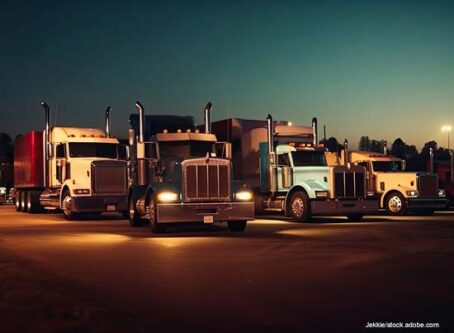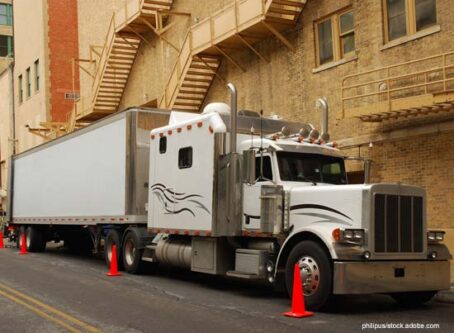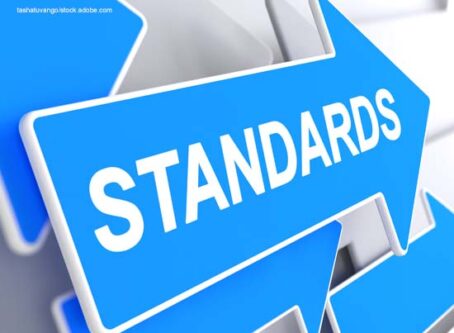OOIDA supports reducing redundancy, asks that savings go to driver training programs
The Owner-Operator Independent Drivers Association submitted formal comments earlier this week regarding FMCSA’s proposal to make it easier for drivers to upgrade a Class B commercial driver’s license to a Class A CDL.
While OOIDA agrees with the agency’s efforts to reduce redundancy in the certification process, the Association wants the proposal to eliminate a loophole that would allow some Class B drivers to upgrade without ever taking the courses included in the new entry-level driver training regulations.
FMCSA’s notice of proposed rulemaking, which published in the Federal Register on June 29, would reduce the training time and costs for Class B drivers to receive an upgrade.
Under the proposed rule, eight theory instructional units (Handling and Documenting Cargo, Environmental Compliance Issues, Post-Crash Procedures, External Communications, Whistleblower/Coercion, Trip Planning, Drugs/Alcohol, and Medical Requirements) would no longer be required for Class B CDL holders who are upgrading to a Class A CDL. However, the units would remain a requirement for an individual who is attempting to obtain a Class A CDL and does not already hold a Class B CDL. Beginning on Feb. 7, 2020, those training classes will already be required in order to obtain a Class B CDL.
Drivers who obtain a Class B CDL before Feb. 7, 2020 would be able to upgrade to a Class A without ever taking these courses if this becomes a rule.
“OOIDA favors the elimination of these duplicative requirements beginning on Feb. 7, 2020, and believes the cost savings from the rulemaking should be reinvested into entry-level driver training programs, specifically behind-the-wheel instruction,” OOIDA wrote in its comments submitted on Aug. 28. “However, commercial drivers with a Class B CDL prior to Feb. 7, 2020, should not be exempt from the training requirements discussed in this rulemaking. FMCSA should not arbitrarily exempt drivers from critical training based on the timeframe in which they obtained their CDL.”
FMCSA said it believes Class B holders who were able to forego the courses would still have enough experience in order to be worthy of an upgrade.
“FMCSA presumes that these Class B holders seeking to upgrade to a Class A CDL would already have varying levels of commercial motor vehicle driving experience and pre-CDL training, and thus knowledge of the commercial motor carrier industry,” the Agency wrote. “Accordingly, FMCSA does not consider Class B CDL holders in this category to be novice commercial motor vehicle drivers.”
According to the FMCSA, an annual average of 11,340 driver-trainees would be affected by the proposed rule as each would experience a reduction of 27 hours in time spent completing their theory instruction. The agency estimates that driver-trainers would realize an annual cost-savings of $17.1 million, while motor carriers would receive an annual cost savings of $1.04 million.
FMCSA’s entry-level driver training rule, which does not include a minimum number of behind-the-wheel driving hours, was published in 2016 and has a compliance date of Feb. 7, 2020.
OOIDA continues to push for improvements in driver training, including behind-the-wheel training. As part of the negotiated rulemaking to form the driver training rule, FMCSA formed a committee of 26 industry stakeholders. Twenty-four of the 26 members of the negotiated rulemaking committee agreed that 30 hours of behind-the-wheel training should be required. However, the FMCSA opted for a proficiency-based approach and did not include any behind-the-wheel hours requirements in the rule.
“OOIDA has long advocated for entry-level driver training standards, because well-trained drivers are safer drivers,” the Association wrote. “Over the years, OOIDA has consistently provided feedback and guidance to FMCSA as the agency has proposed entry-level driver training regulations. OOIDA remains supportive of at least the minimum behind-the-wheel requirements that were encouraged throughout the rulemaking process. OOIDA is hopeful that the estimated 10-year cost savings of $182 million recovered from this proposal can be reallocated toward other entry-level driver training programs.”









